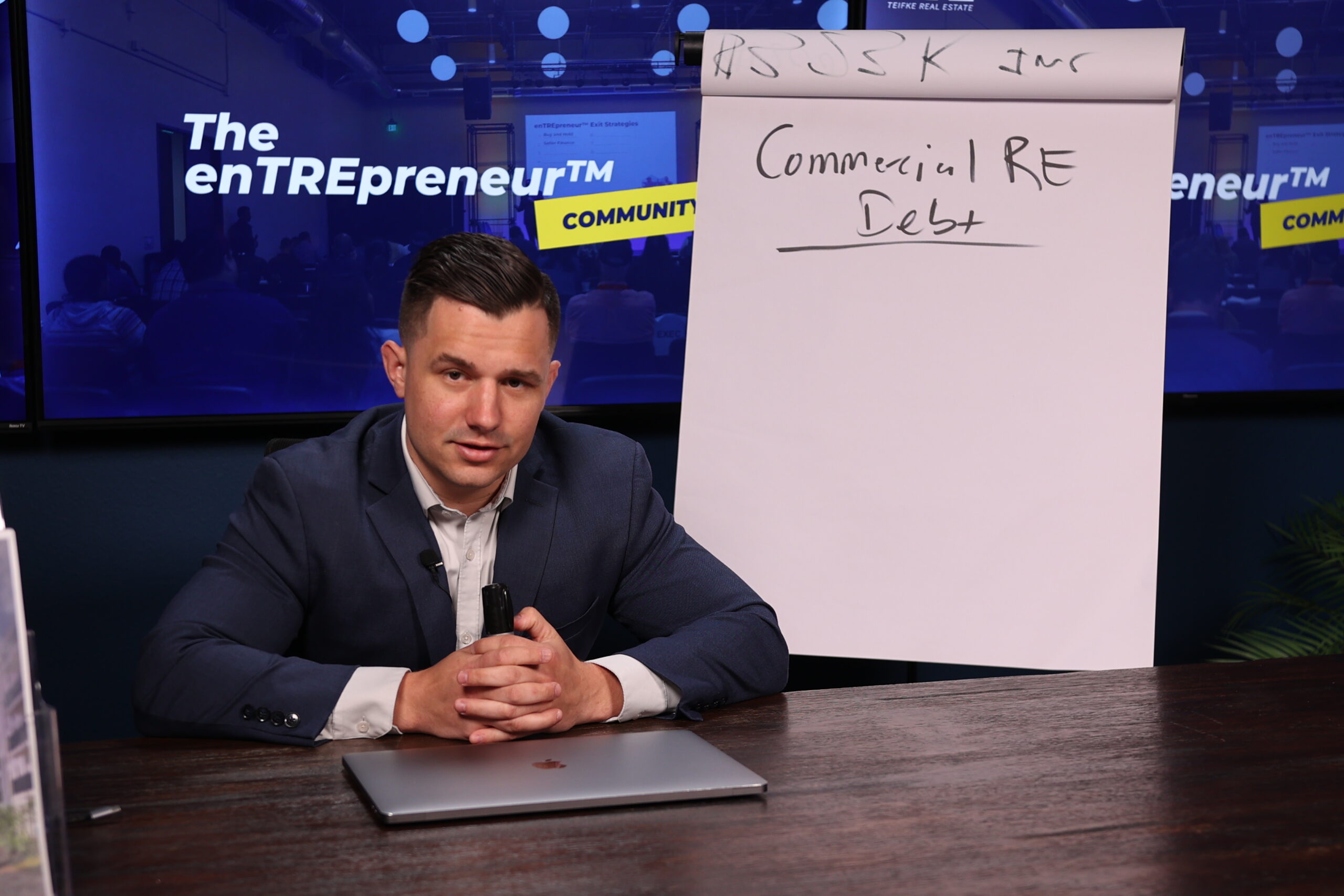Table of Contents
In this article:
- What you should consider before selecting a lender or loan type
- Types of loans available for purchasing a rental property
- How to find consulting if you're buying your first (or next) rental property
Applying for rental property loans is often a complex and tedious process. There are a number of factors to consider along the way and so many options to choose from that it could take a significant amount of time before you’re ready to sign on the dotted line with a lender.
Before you pursue any rental property loan, it’s important to determine exactly what your goals are with the property in question. If you’re planning to remodel or flip it right away to sell on a short timeline, then a long-term loan may not be a good fit.
On the other hand, if you’re planning to buy and hold the listing to turn it into an income-generating asset, you may have more flexibility. This is just one facet of the decision but in this article, we’ll dive into several more and help you arrive at the best solution for your property and your contract.
Top 5 Things To Consider Before Choosing Your Lender or Loan
Final Loan Amount
The amount you need to purchase the property isn’t the same as what you’ll end up paying over time with traditional financing options. There are always fees, interest rates, and other associated costs built into the loan agreement that add up to a significant amount.
The location of the property and the condition it’s in will also affect the overall loan amount. If you’re securing a turn-key property in a pricey area vs. a fixer-upper in a growing area, the loan will have to be significantly higher and will take longer to pay off, depending on your investment plans.
Interest Rates
We all know interest rates fluctuate with the housing market, usually on opposite schedules. Investments are considered a greater risk to the lender than your average home loan. In most cases, the interest rate for investment properties will be higher than those for primary residence loans.
Your interest rate will also vary depending on your personal credit score. If you’re new to the real estate investment world, this takes time to build up and restore. The higher your score is, the lower your interest rate will be. If this is your first investment property, your score may not be ready to sustain the impact of a high-interest rate on your credit and free cash reserves.
Minimum Credit Score
Your personal credit score plays a significant role in your eligibility for an investment property loan. This is always a topic that most investors don’t give enough consideration to when going into investment properties.
If you can make time to improve your credit score before applying for a loan, you could qualify for a higher loan amount as well as a lower interest rate. However, if that’s not possible, most bank lenders will approve loans for credit scores of at least 640 and above.
Down Payment Requirements
Just like a loan for a primary residence, conventional lenders require down payments for rental property loans. In most cases, this is 20% of the property value. The higher the price tag on the property, the more cash you’ll need upfront.
The brighter side of that equation is that the more you’re able to pay upfront, the loan amount may go up, and the interest rate may go down. FHA loans or VA loans could bring the minimum downpayment required down if you qualify for those loan options. There may also be more flexibility if you’re considering a multifamily property where you will also be living.
Closing Timeline
The types of investment property deals we like best are the ones that can move quickly. If you’re financing your rental property through conventional lenders, you may not have the flexibility you need to operate on a quick turnaround.
If the property is a short sale or the buyers are in a bind, or there’s a significant amount of interested parties, offering a quick timeline could give you the competitive edge. Don’t miss out on premium deals by painting yourself in a corner with inflexible lenders.
Types Of Rental Property Loans Available

Rather than just heading to your family’s local bank, consider a few other financing options.
Conventional Loans
Conventional lenders are your local branch banks and credit unions that are guaranteed by Fannie Mae or Freddie Mac and meet the GSE guidelines. The benefits of these lenders are that they offer lower interest rates for those with strong credit scores and often lower down payments.
However, if you are starting to build out an investment portfolio, this would not be the best option once you grow beyond three or four mortgages.
FHA Financing
Loans backed by the Federal Housing Administration are also managed by mortgage brokers in conventional lenders but offer more flexible terms and rates for new construction, rehab properties, and multi-unit properties.
However, even though the required down payment and credit score threshold may be lower, there is often a residence requirement. If you don’t plan to live on the property for a least one year, skip this option.
VA Financing
If you’re an active duty member of the US military, a veteran, or an eligible spouse, a VA multi-unit loan may be an option for your rental property loan. VA loans don’t require a minimum down payment or a high credit score, but there is a residence requirement.
Portfolio Lending
A portfolio loan is one loan that covers multiple property purchases with the same bank or mortgage broker. While more difficult to get, these rental property loans offer more flexibility for the borrower but will result in higher fees and potential early payment penalties.
Alternative Financing Options
Banks and Credit Unions aren’t your only options. Consider pursuing private money loans from friends, family, or trusted investors. You could also take out a HELOC or Home Equity Line Of Credit on an existing property as a way to purchase another.
Work with sellers who are willing to carry the loan and offer seller financing. Look for a distressed seller who is willing to sign over the property and simply take payments. Hard money loans are another form of asset-based lending that could also get you the financing you need outside of conventional channels.
Real Estate Investment Services and Consulting
If you’re interested in getting started in real estate investment or are looking for experienced guidance, the expert team at Teifke Real Estate has done it all. From investments and property management to creative financing and same-day deals, we’re the premier real estate team in the Lone Star State. Contact our team today and see how we can change the trajectory of your real estate career.
Frequently Ask Questions About Rental Property Loans
Below are some of the most frequently asked questions surrounding how to find the best loans to obtain a rental property.
Overall, this depends on the lender. In most cases, a minimum credit score of 640 is required, although some lenders drop down to as low as 620. Remember, the lower the credit score, the higher the interest rate will be with conventional loans.
Debt Service Coverage Ratio (DSCR) loans will come with a higher interest rate, bigger fees, and require at least a 20% down payment. This makes them a more challenging option in terms of profitability and risk.
LTV stands for loan-to-value amount. This Measures the amount of the loan in comparison with the value of the property. If you’re able to put down a larger down payment, the LTV will be lower.
The 1% rule or the 2% rule refers to the monthly rent amount. If the property was purchased for $200,000, 1% would be $2,000, and that should be the monthly rent. The 2% rule is the same but won’t hold true in every market.
In some cases, yes. If you do, however, it cannot also be deductible from your taxes. However, you will still receive the benefit of the write-off via depreciation. Other possible write-offs include interest on the mortgage, utilities, operating expenses, property taxes, and the cost of repairs.
A 30-year fixed conventional rental property loan for $200k typically requires a 5% down payment. A $200k property would require a $10,000 cash down payment. A higher down payment could reduce the interest rate.
Official numbers from Freddie Mac[1] report that one unit investment property has a maximum LTV of 85%, and a two to four-unit investment property has a maximum LTV of 75% For purchases and “no cash-out” refinance mortgages. For cash-out refinances, these numbers dropped to 75% and 70%, respectively.
[1] Maximum LTV/TLTV/HTLTV ratio requirements for conforming and super conforming mortgages. Freddie Mac Single-Family. (n.d.). Retreived from https://sf.freddiemac.com/general/maximum-ltv-tltv-htltv-ratio-requirements-for-conforming-and-super-conforming-mortgages on 4 May 2023






